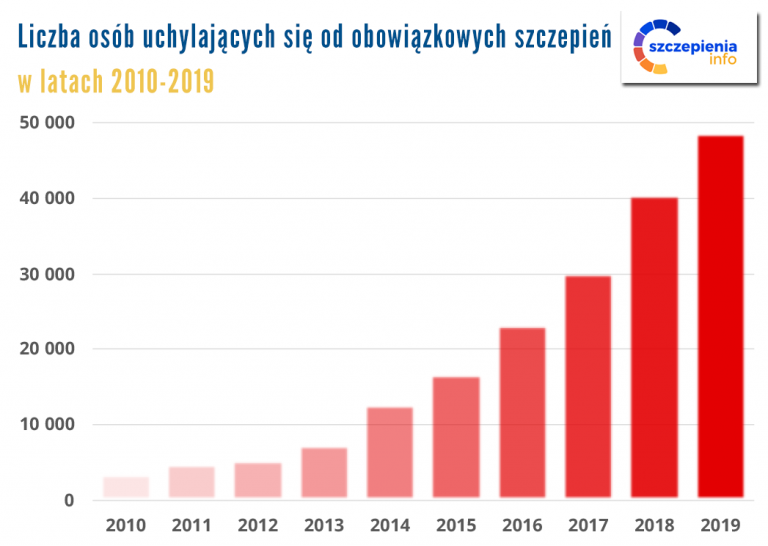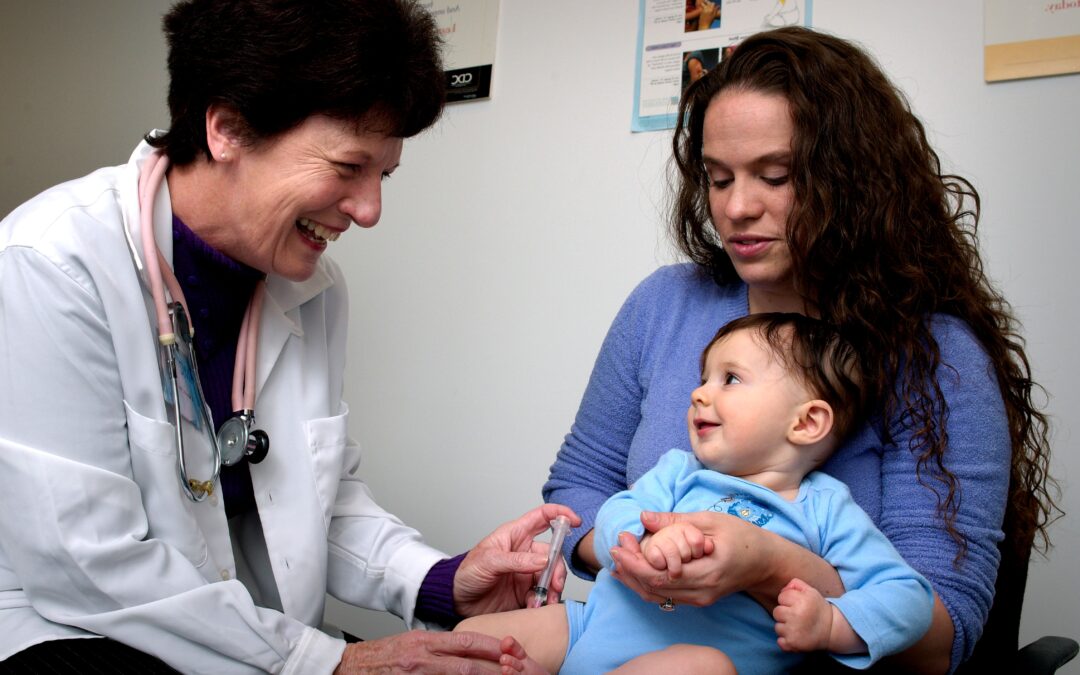The level of vaccination of children against measles in Poland has fallen so low that the country has lost herd immunity against the disease, warns UNICEF. The trend has been driven in large part by unfounded concerns that the vaccine harms children.
Over the last decade, the number of parents refusing to vaccinate their children has increased by a factor of almost 14. In 2019, the number of people not receiving compulsory vaccinations in Poland reached 48,609, up from just 3,437 in 2010.
Last year, by October the number of refusals was 13% higher than in the same period of 2019 and had exceeded 50,000, notes UNICEF. This is the “result of anti-vaccination groups spreading disinformation and harmful myths”, says Hanna Czajka, a paediatrician specialising in infectious diseases.

Number of people in Poland avoiding compulsory vaccinations each year (source: Biuletyny roczne “Szczepienia ochronne w Polsce”, NIZP-PZH, GIS)
A particular concern is over measles, where the refusal of parents to vaccinate “has already led to the loss of population immunity”, notes UNICEF. To guarantee protection against measles, it is necessary to have a vaccination rate of 95%. But in Poland the level fell below 93% in 2018 and has continued to drop.
In 2019, Poland reported 1,423 cases of measles – more than in the previous 18 years combined. Only three other countries in Europe – France, Romania and Italy – had more cases of the disease than Poland that year.
Many of the infections in Poland were found among the country’s large immigrant population from Ukraine, a country that has even lower levels of vaccination and had been experiencing a measles epidemic.
In many other European Union countries, vaccination are also lower than in Poland. Coverage of the second dose of measles vaccines in 2018 was below 90% in 13 EU member states, according to the European Centre for Disease Prevention and Control.

Proportion of children in Poland receiving first (dark blue bars) and second dose (light blue bars) of measles, mumps and rubella (MMR) vaccines. The yellow line is the recommended 95% vaccination rate to achieve herd immunity.
UNICEF points out that, by refusing vaccinations, parents are not only putting their own children at risk, but also people who cannot be vaccinated for health reasons. Vaccination “is the only effective tool to protect Polish society against the outbreak of an epidemic of life-threatening infectious diseases”, it warns.
Czajka notes that the pandemic has made the situation worse by discouraging people from visiting health clinics. But she also believes that it should act as a reminder of how dangerous infectious diseases are.
“Measles is many times more contagious than COVID-19,” she warns. “A measles outbreak will have catastrophic consequences.”
Due to such concerns, UNICEF last month issued an appeal to the Polish health minister to take steps to rectify the situation. This should include “fighting disinformation and supporting parents in accessing reliable information on vaccinations”.
In 2019, a Polish doctor was suspended from practising medicine after repeatedly criticising vaccinations given to children. He became a prominent figure in Poland’s growing movement against vaccines, claiming they are part of a conspiracy to weaken the Polish nation and perpetuating the discredited idea that they cause autism.
In 2018, thousands took to the streets of Warsaw in a march to protest against compulsory vaccines. A leading anti-vaccine group that year gathered the requisite 100,000 signatures for submission to parliament of a legislative proposal to end such vaccinations.
The medical community and local authorities have sought to fight back. A number of cities, including Poznań and Częstochowa, have restricted or banned entry to public nurseries and preschools for unvaccinated children. Last year, a group of senators and a deputy health minister supported introducing such a ban nationally.

Daniel Tilles is editor-in-chief of Notes from Poland. He has written on Polish affairs for a wide range of publications, including Foreign Policy, POLITICO Europe, EUobserver and Dziennik Gazeta Prawna.




















